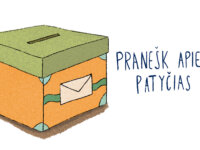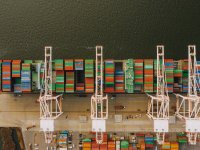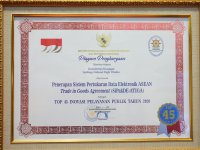Repetitive tasks for a civil servant involve between 3 and 6 hours a day, and generate delays in administrative processes and increase human errors. By innovating the automation of these tasks, using a free Robotic Process Automation (RPA) software, response times, costs and quality of service within the District institutions and to the citizen are improved.
Innovation Tag: Process Improvement/Simplification
Aviation is regulated in a vast set of laws and agreements, on an international and national level and is to be respected by aviators of all sizes; from big national airports, till little children playing with drones. All these different rules and moreover national differences lead to an incredibly complex system to implement. The Belgian Federal Public Service Mobility has developed a system that translates these legal requirements into a single online aircraft registration platform.
An Economic Reform Governance Model to reform design and delivery of citizen-and business-centric public services was introduced in 2016. Aim of the Model was to eliminate barriers, ensure transparency, develop digital public services and expand competitiveness through increasing engagement of civil society and businesses in the reform process. Implementing 136 reform initiatives by passing 55 legal acts enabled the government to create more favorable social-economic opportunities for citizens.
In cooperation with the Korean government, major companies, social enterprises, and international organizations, Ulsan Port Authority (UPA) has initiated a project of “upcycling plastic waste coming from ships,” aiming to solve harbor-specific ocean plastic pollution. The UPA has improved upon the policies on discharging plastic waste from ships and created an upcycled product using the plastic waste. The UPA’s practice has contributed to reduce ocean plastic pollution.
Bullying is one of the main social challenges in Lithuania with about 30% of children becoming victims of bullying few times a week. Most of them don’t report the incidents while school officials often can’t recognize and effectively provide help for both victims and bullies. “Patyčių dėžutė” is a mobile app which allows children to anonymously report bullying accidents, while REAGUOK.LT is a e-learning platform for teachers with all the relevant information about how to respond to…
The Reducing Friction in Trade (RFIT) project was initiated in March 2019 as a proof of concept to establish how blockchain distributed ledger technology and associated technologies can be used to seamlessly integrate supply chain data with HM Revenue & Customs and the Food Standards Agency’s systems. The project intends to do so by guaranteeing the timeliness and provenance of critical data and avoiding the need for discrete declarations.
The Indonesian Government has initiated “I-Gateway” as Hub for ASEAN Trading Document, enabling electronic data exchange such as certificates of origin to ensure authenticity, reduce paper work and eliminates redundancy. I-Gateway connects both domestically among national agencies and internationally with other countries. It validates and reconciles documents efficiently, to ensure its security as well as business process simplification and harmonization, aiming to higher ease of doing…
Case Study
ASEAN Food Security Information System (AFSIS): Innovation for Agricultural Data Management &…
The Government of the Republic of Korea has implemented an ICT-based agricultural data management system through digitalization and a human capacity building program, which allows innovative data collection, analysis, and sharing in 6 ASEAN member countries. Through this, the governments have improved the paperless work process on agricultural statistics, accumulating the data and human resources for enhancing food security in the ASEAN region.
The Internet's potential to enable micro, small and medium-sized enterprises (MSMEs) to conduct international commercial transactions has yet to be fully realised. With an emphasis on computational approaches to trade policy design and delivery, SUBREI has launched a pilot programme to contribute to an open repository of rules in a digital form: an 'Internet of Rules' (IoR).
The IoR will expand access to cross-border transactions and improve use by people and machines alike.
Procurement organizations have limited resources and decide which procurement solutions to pursue that will bring the greatest benefit to their public sector customers. The Emerging Markets initiative solicits insights directly from the private sector, offering an opportunity to provide ideas that are innovative and forward thinking, to anticipate and proactively meet the needs of multiple governmental entities throughout the country.





